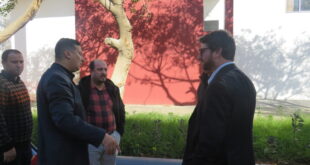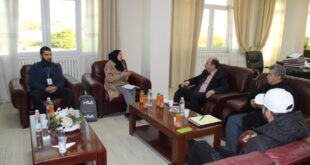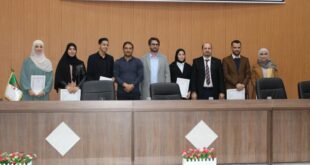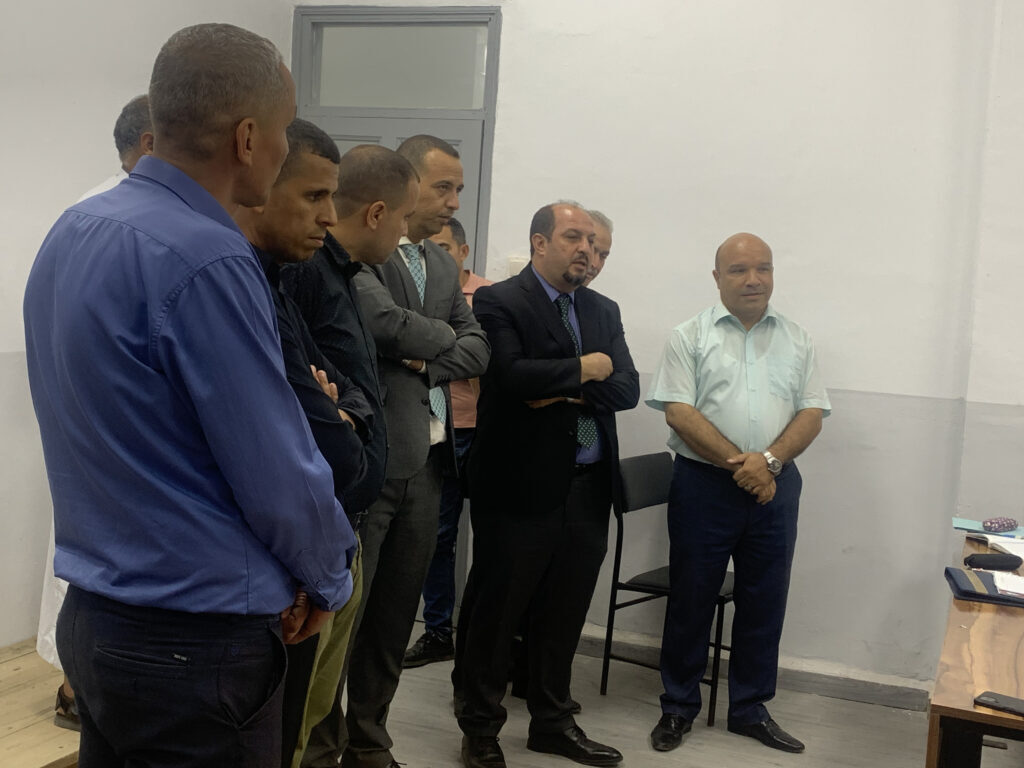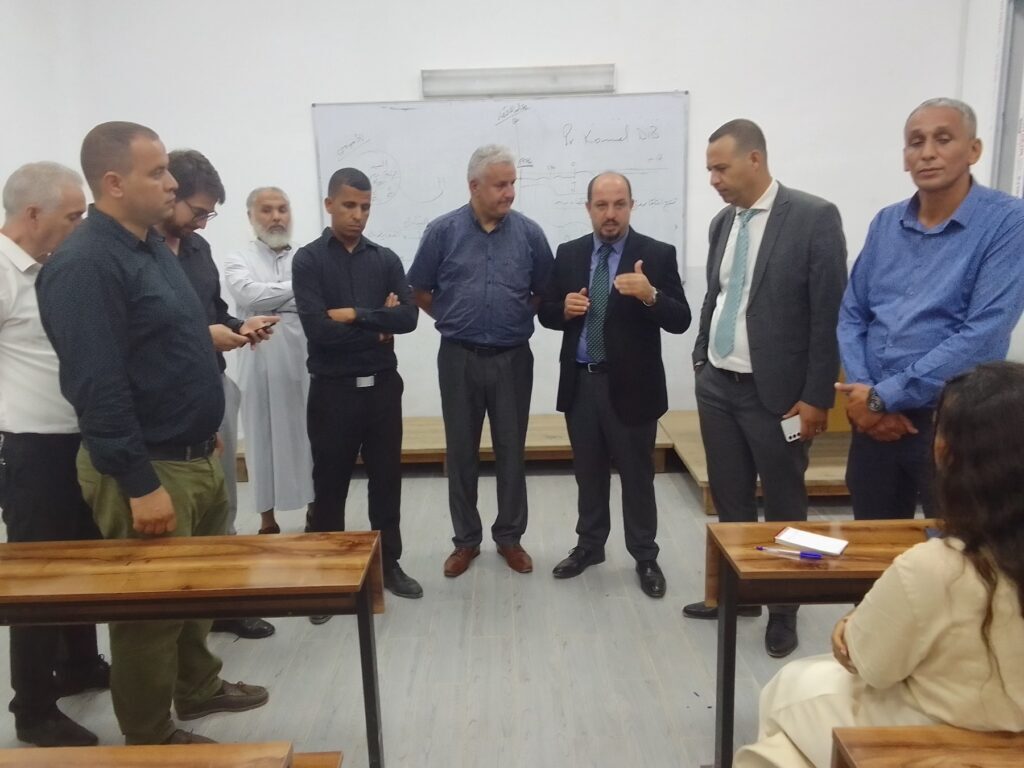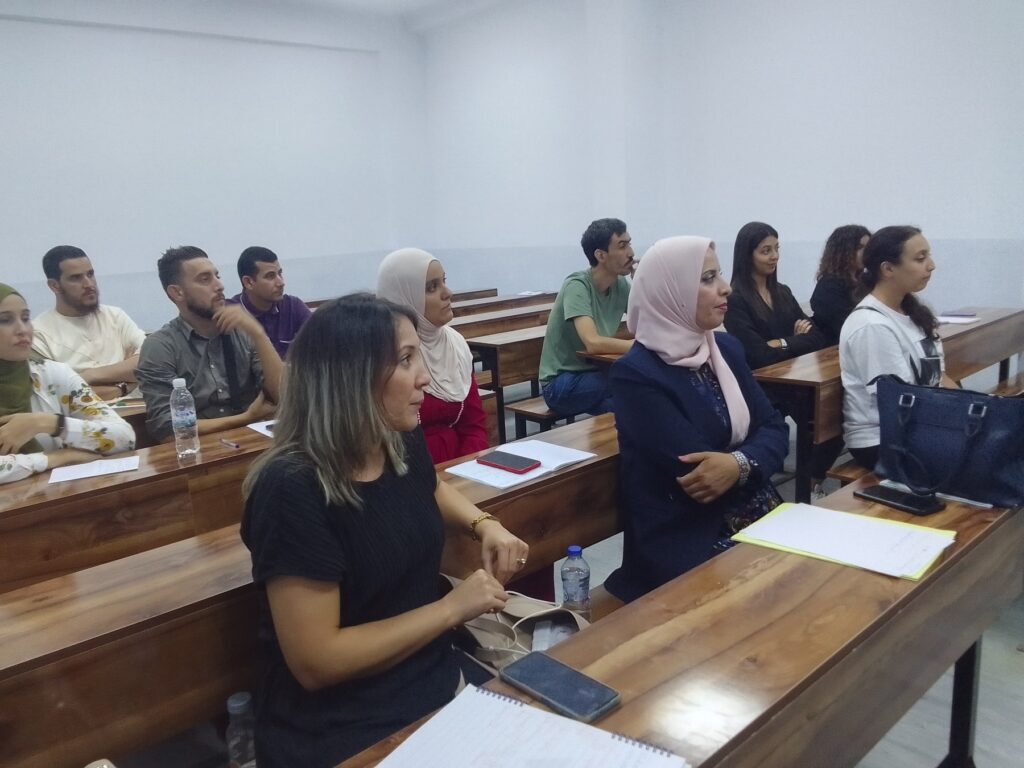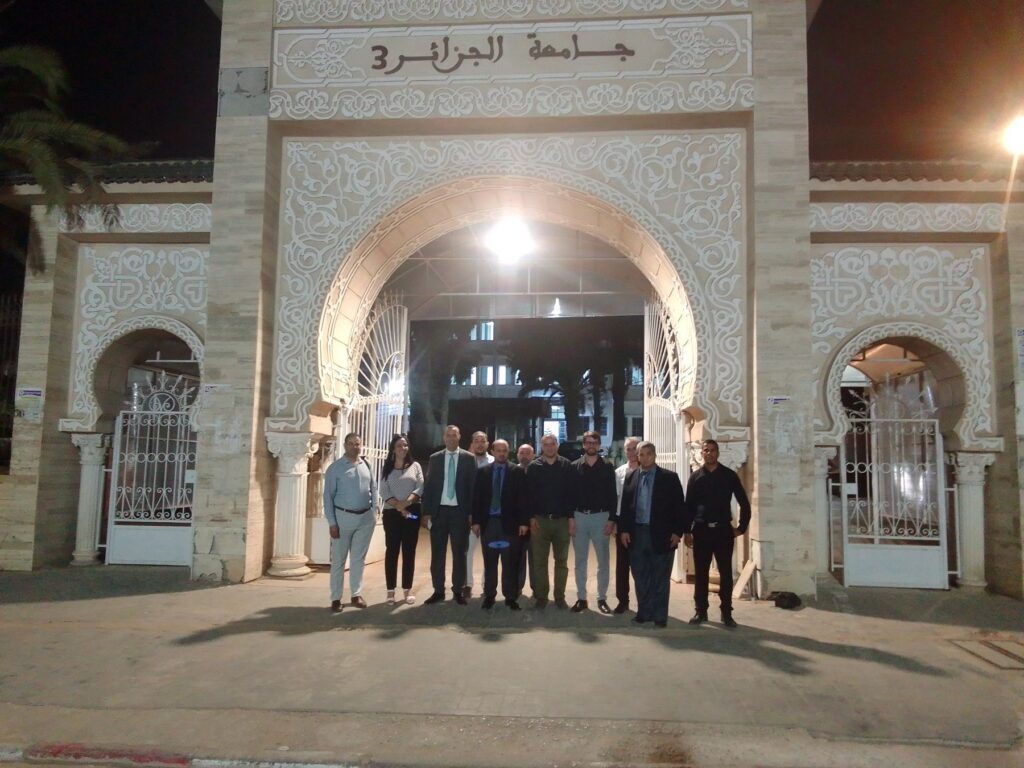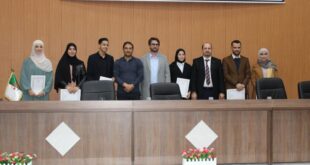Last night, the director of the University of Algiers 3, Professor Khaled Rouaski, conducted an inspection visit to the annex of the Faculty of Economics, Business and Management in Ben Aknoun to inquire about the evening teaching conditions adopted this year by the University of Algiers 3, which pioneered the matter by applying the ministerial instructions relating to the opening of university spaces and enabling students to study in the evenings and carry out their research work.
The university director, accompanied by his deputies and the general secretary of the university, was welcomed by the dean of the Faculty of Economics, who accompanied the director on a tour of the various facilities of the faculty annex, the teaching departments, the library, the amphitheaters and more.
The university director stated that the university administration had implemented all the necessary resources to ensure the success of this first pilot experiment at the national level, by providing security, transportation, food, lighting and the presence of administrative staff, the library, etc., so that the university is like other international universities, whose doors remain open and services accessible in the evenings until late.
The university director considered evening teaching to be part of the reform strategy objectives of the Ministry of Higher Education and Scientific Research, reassuring students that all conditions were met to successfully carry out their research work and studies, while personally committing himself to addressing the various concerns allowing proper management of the evening university, and making the University of Algiers 3 a pioneer in this type of education.
The university director also attended a master’s 1 economics class, where he learned about the teaching methods and tools used, insisting on the need to provide the means, equipment and electronic digital technologies, in order to best achieve and obtain qualitative results in the field.
It should be noted that the number of students enrolled in the master’s program to study at night amounts to nearly 500, a figure expected to increase given the simultaneous demands for evening courses.

